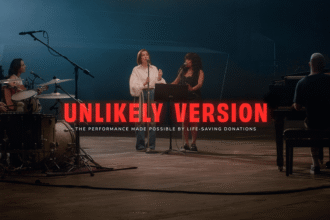Singapore consumers are prioritising quality of life over the number of years lived, according to the Manulife Asia Care Survey 2025. The survey, which interviewed 1,021 Singapore consumers, revealed that living with enjoyment, meaning, and financial independence is valued more than extending lifespan. However, gaps between retirement aspirations and the financial ability to fund these aspirations were revealed. Financial readiness and living better thus emerged as key needs for Singapore consumers to achieve their goals.
A refined view of longevity
The survey results challenged conventional views of longevity in Asian societies. Instead of chasing longer years lived, it is now characterised by quality, meaning, purpose, and health. 24% of respondents said that, in their older years, their top wish is to stay active and enjoy life, while only 6% wished for a longer lifespan. When asked why living longer was not their top wish, more than 50% said they wanted a meaningful life and quality of life over a longer life. In particular, living with dignity as they age is crucial for Singaporean consumers, with 43% wanting to avoid extended periods of chronic illness compared to a regional average of 31%.
Benoit Meslet, Chief Executive Officer of Manulife Singapore, remarks: “We see a shift in perspectives of aging and longevity in Singapore. It is no longer defined by the number of years, but by the quality of the years lived. Singapore consumers in particular value living with financial security, health, and dignity. We believe that enjoying a better life in later years requires thoughtful preparation. While financial planning is essential, embracing a holistic approach that includes health and wellness is equally crucial. Manulife Singapore supports our customers through this journey with our financial and wellness solutions.”
Desire to improve financial security in retirement among Singapore consumers
Financial freedom remains a key aspiration for Singapore consumers, with 21% aiming for total financial independence without needing to rely on others as a top wish. However, despite this, Singapore consumers do not seem to be putting their money into options may offer higher-growth potential. According to the survey, cash remains the most important tool or resource for retirement preparation for 35% of Singapore consumers, followed by pension scheme (which would be the Central Provident Fund in Singapore) at 22%, and property investment at 19%.
In addition to their own finances and retirement planning, the majority of Singapore consumers are also taking care of their parents financially. According to the Singapore consumers surveyed, 65% are already paying for their parents’ expenses, with 35% saying they are footing more than half of these expenses. To afford these obligations, 45% of the Singapore consumers intend to use their own retirement savings, and 44% say they would work as long as they can.
Most Singapore consumers recognise that holding cash may not be the best way to plan for retirement. Among those who think they do not have sufficient funds for retirement, 51% of Singapore consumers feel the need to diversify their cash holdings into investment options that may offer higher potential returns to afford retirement. Also, 58% are now more willing to invest idle cash into assets that can potentially generate sustainable income, while 49% want their pension providers to ensure steady income streams during retirement.
Koh Hui-Jian, Chief Executive Officer of Manulife Investments Singapore, states, “We are heartened that many Singapore consumers are actively seeking ways to diversify their investments, build robust income streams, and better utilise their cash holdings. Understanding the importance of these actions is a crucial first step in effective retirement planning. There are numerous resources in the market that can assist them on this, such as mutual funds, regular savings plans, voluntary contributions to their public retirement scheme, and other kinds of retirement- or long-term income-oriented investment solutions. The key is to start early and stay invested, even into retirement years. The potential returns generated can be reinvested to further fuel the recurring income needed for the financial freedom that Singapore consumers desire.”
Better lives possible with holistic view of wellbeing and longevity
When it comes to future expectations of their health, the survey uncovered pessimism among Singapore consumers. 53% believe that cancer is the most difficult illness to prevent, followed by Alzheimer’s (29%), and stroke (27%). Also, on average, they expect to start experiencing critical health issues at age 66.5 years, if they have not experienced any already. Singapore consumers also said they expect to live to age 79 – suggesting that they foresee at least 12 years of living in illness.
Singapore consumers (72%) believe that their financial wellbeing has an impact on their physical health. In particular, insurance is regarded by many Singapore consumers as a means to alleviate worries and enhance their health – 70% agree that insurance protection helps them have greater peace of mind in their retirement years; and over half (52%) believe it can positively impact their physical health.
However, despite these beliefs, only 35% have critical illness insurance, 41% have life protection insurance, and 15% have disability insurance. Also, 30% of the consumers do not plan to take up any insurance in the next 24 months.
Mark Czajkowski, Chief Marketing Officer of Manulife Singapore, notes, “Even as insurers improve their product offerings, the lack of urgency to assess coverage gaps suggests that insurers can create more opportunities for conversations around health, wellness, and longevity to take place. Manulife Singapore’s focus is to engage customers on what it means to live better throughout your life. Talking about how insurance can fill these gaps is the first step towards ensuring well-being; as we live longer lives, we want to have better lives too. Manulife Singapore is taking steps to support our customers through their life journey.”
Legal Disclaimer: The Editor provides this news content "as is," without any warranty of any kind. We disclaim all responsibility and liability for the accuracy, content, images, videos, licenses, completeness, legality, or reliability of the information contained in this article. For any complaints or copyright concerns regarding this article, please contact the author mentioned above.

















